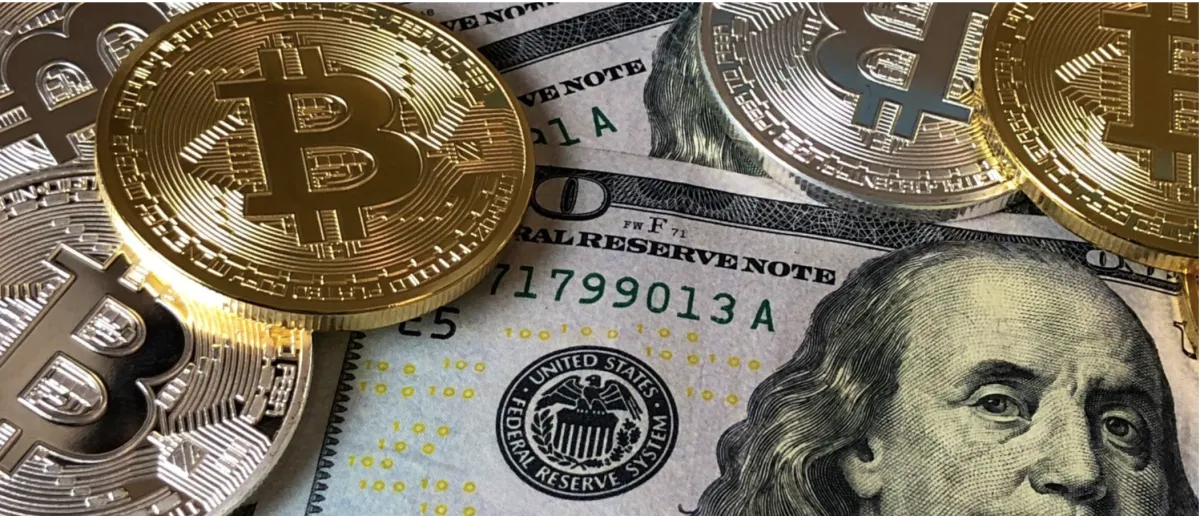NEWS

5 Essential Tips for Safely Managing Your Digital Assets and Cryptocurrency Investments
Welcome to The Foley Collective's educational tips article on safely managing your digital assets and cryptocurrency investments. In today's rapidly evolving world, digital assets and cryptocurrencies have become increasingly popular investment options. However, navigating this complex landscape can be challenging, especially when it comes to ensuring the security and protection of your investments. That's why we have compiled five essential tips to help you safely manage your digital assets and cryptocurrency investments.
At The Foley Collective, we are dedicated to providing our clients with the knowledge and tools necessary to make informed investment decisions. With our expertise in digital assets, blockchain technology, and gold investments, we cater to a diverse clientele, ranging from novice investors to seasoned professionals. Our core values of education, integrity, innovation, client-centric approach, and community collaboration guide us in delivering top-tier services and resources.
In this article, we will cover a range of topics, including securing non-custodial crypto wallets, protecting against scams and fraud, implementing strong security measures, staying informed about market trends, and seeking professional advice and education. By following these tips, you will be empowered to make informed decisions and protect your investments in the complex world of digital assets and cryptocurrency.
Whether you are an aspiring investor, an experienced investor looking to diversify your portfolio, a tech-savvy individual interested in blockchain technology, a retirement planner, a financial advisor, a family office, or a student/academic, this article is designed to provide valuable insights and practical strategies tailored to your specific needs.
We invite you to join The Foley Collective's community of informed and empowered investors. Sign up for our newsletter and attend our upcoming 3-day challenge to further enhance your knowledge and skills in managing digital assets and cryptocurrency investments. Our commitment to education, integrity, and a client-centric approach ensures that you receive the highest level of support and guidance on your investment journey.
Now, let's dive into the first tip: securing non-custodial crypto wallets.
Tip 1: Securing Non-Custodial Crypto Wallets
Non-custodial crypto wallets are digital wallets that give users full control over their private keys and funds. Unlike custodial wallets, which are managed by third-party service providers, non-custodial wallets offer enhanced security and privacy. By using a non-custodial wallet, individuals can protect their digital assets from potential hacks or breaches.
To set up and secure a non-custodial crypto wallet, follow these steps:
1. Research and choose a reputable non-custodial wallet provider. Look for wallets that have a strong track record of security and positive user reviews.
2. Download the wallet app from the official source, such as the provider's website or app store.
3. Follow the setup instructions provided by the wallet provider. This typically involves creating a strong password and securely storing the wallet's recovery phrase or seed phrase.
4. Enable additional security features, such as two-factor authentication (2FA) or biometric authentication, if available.
5. Regularly update the wallet app to ensure you have the latest security patches and features.
When choosing a wallet provider, it's important to research their reputation and history. Look for reviews, testimonials, and feedback from other users. Check if the wallet provider has undergone security audits or has partnerships with reputable security firms. Consider wallets that have a strong community of users and active development teams. Additionally, look for wallets that offer multi-signature functionality, which requires multiple signatures to authorize transactions, adding an extra layer of security.
Tip 2: Protecting Against Scams and Fraud
In the digital asset and cryptocurrency space, there are common scams and frauds that individuals should be aware of. These include phishing scams, Ponzi schemes, fake ICOs, pump and dump schemes, and malware and ransomware attacks. To protect yourself against these scams, it's important to be cautious and implement security measures.
Be cautious of unsolicited investment opportunities or promises of guaranteed returns. Verify the legitimacy of a project or investment opportunity by conducting thorough research. Double-check URLs and email addresses to ensure you are interacting with legitimate websites and contacts. Never share your private keys, passwords, or recovery phrases with anyone. Use reputable cryptocurrency exchanges and platforms that have implemented robust security measures.
When it comes to securely storing private keys and passwords, consider using a password manager to generate and store strong, unique passwords for each online account. Additionally, consider using a hardware wallet, a physical device that securely stores private keys offline. Implement multi-factor authentication wherever possible and regularly update and change your passwords. Keep backups of your private keys and recovery phrases in secure, offline locations.
Tip 3: Implementing Strong Security Measures
Implementing strong security measures is crucial for protecting your digital assets and cryptocurrency investments. Use long and complex passwords that include a combination of uppercase and lowercase letters, numbers, and special characters. Avoid using easily guessable passwords. Enable two-factor authentication on all your online accounts. Keep your devices updated with the latest security patches and install reputable antivirus and anti-malware software. Avoid using public Wi-Fi networks and regularly backup your important data.
Consider using hardware wallets, which provide an extra layer of security by storing private keys offline. Hardware wallets require users to physically confirm transactions on the device itself, reducing the risk of unauthorized transactions. Popular hardware wallet brands include Ledger, Trezor, and KeepKey.
Tip 4: Staying Informed About Market Trends
Staying informed about market trends is essential for making informed investment decisions. The digital asset and cryptocurrency markets are highly volatile and subject to rapid changes. By staying updated on market trends and news, you can gain insights into emerging technologies, regulatory developments, and potential investment opportunities. Follow reputable news sources, blogs, and social media accounts that cover digital assets and cryptocurrencies. Utilize cryptocurrency market data platforms to track price movements, trading volumes, and market capitalizations. Join online communities and forums dedicated to digital assets and cryptocurrencies. Consider using technical analysis tools and indicators to analyze price charts and identify potential trends or patterns.
When interpreting market trends, conduct thorough research and due diligence before making any investment decisions. Diversify your investment portfolio to spread risk across different assets and sectors. Set realistic investment goals and stick to your long-term investment strategy. Consult with financial advisors or wealth managers who specialize in digital assets and cryptocurrencies for personalized advice and guidance.
Tip 5: Seeking Professional Advice and Education
Seeking professional advice from financial advisors or wealth managers can provide personalized investment strategies tailored to your financial goals and risk tolerance. They have expertise in navigating the complexities of digital assets and can help you make informed
Ready to stay in the know?
Get a subscription to the premium TFC Newsletter!





